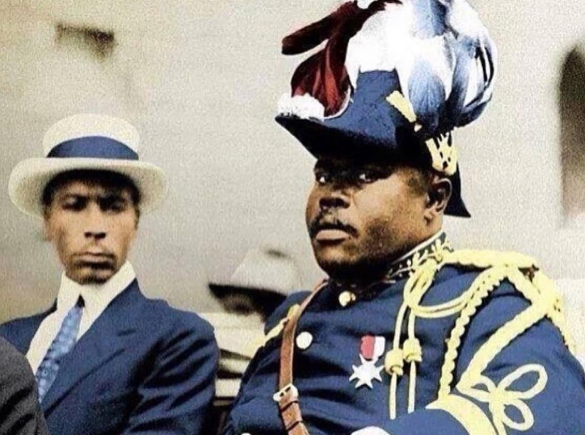With the Biden-Harris administration nearing its final days, members of the Jamaican diaspora in the United States are urging President Joe Biden to issue a posthumous pardon for Jamaica’s first national hero, Marcus Garvey.
Advocates see the move as a chance to right a historic injustice and honor Garvey’s legacy as a champion of Black empowerment and civil rights.
Dr. Julius Garvey, son of the iconic leader, reiterated the significance of the pardon during an interview with The Jamaica Gleaner. “President Biden can grant a posthumous pardon and issue a statement to say no crime was committed by [Marcus] Garvey and that an injustice was being corrected,” he stated.
A pardon would address Garvey’s controversial 1923 conviction for mail fraud, which has been widely criticized as politically motivated.
Garvey, founder of the Universal Negro Improvement Association (UNIA) and the Black Star Line shipping company, was accused of fraudulently advertising shares in a ship the company did not yet own. His conviction, fueled by governmental and prosecutorial misconduct, led to a five-year prison sentence. While President Calvin Coolidge commuted the sentence in 1927, Garvey was deported to Jamaica immediately after his release. He died in 1940
In recent years, efforts to clear Garvey’s name have intensified.
A coalition of 22 members of the U.S. House of Representatives, led by Jamaican-American Congresswoman Yvette Clarke, wrote to Biden last year, emphasizing the unjust nature of the charges.
“Exactly 101 years ago, Mr Garvey was convicted of mail fraud in a case that was marred by prosecutorial and governmental misconduct. The evidence paints an abundantly clear narrative that the charges against Mr. Garvey were not only fabricated but also targeted to criminalize, discredit, and silence him as a civil rights leader. In response to this blatant injustice, President Calvin Coolidge commuted Mr Garvey’s sentence upon eligibility.
“Efforts to clear Garvey’s name have persisted for decades. In 1987, under Congressman John Conyers’ leadership, the House Judiciary Committee held hearings on Mr Garvey’s exoneration,” the letter said.
The letter continues, “In 2004, Congressman Charles Rangel introduced a series of resolutions calling attention to the injustice, followed by Congresswoman Yvette D. Clarke’s recent efforts to continue these strides. Despite these efforts, Garvey’s name has not yet been cleared.”
The US House members said that exonerating Garvey would honor his work for the Black community, remove the shadow of an unjust conviction, and further the Biden administration’s promise to advance racial justice.
“At a time when Black history faces the existential threat of erasure by radical state legislatures, a presidential pardon for Mr Garvey would correct the historical record and restore the legacy of an American hero. As we approach the conclusion of your administration, this moment provides a chance to leave an indelible mark on history,” they said.
Congresswoman Clarke and Georgia Congressman Hank Johnson also introduced legislation in February 2023 calling for Garvey’s exoneration, describing him as “a champion for the liberation of people of African descent.”
Garvey’s influence extended far beyond his conviction. A key figure in the Pan-African movement, he sought to unify people of African descent worldwide through initiatives such as the Negro World newspaper, the UNIA, and the Black Star Line. His legacy as a visionary leader remains a point of pride in Jamaica, where his remains were returned in 1964, and he was declared the nation’s first national hero.
For supporters, a pardon from President Biden would be a long-overdue acknowledgment of the injustice faced by Marcus Garvey and a symbolic victory for racial equity.















